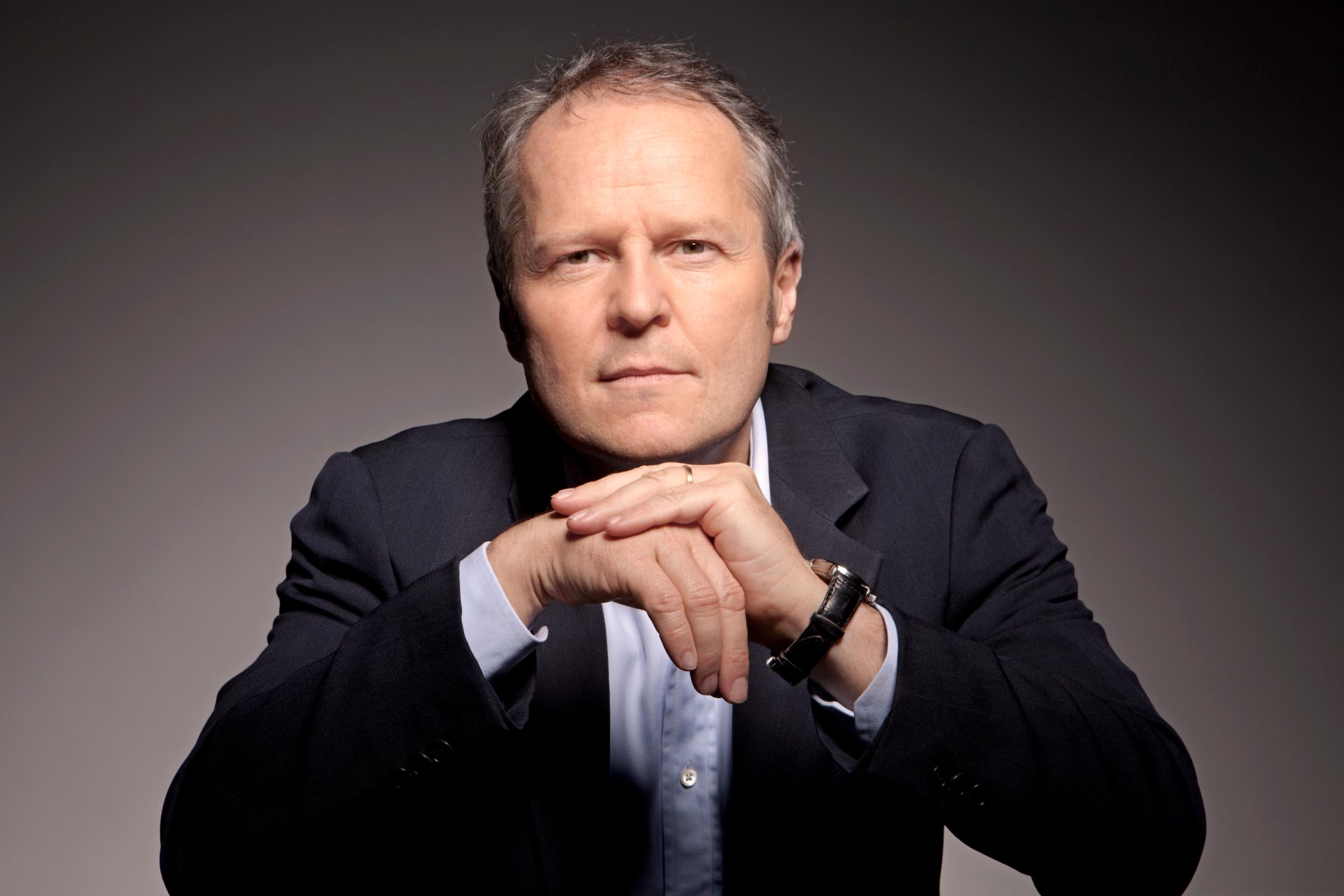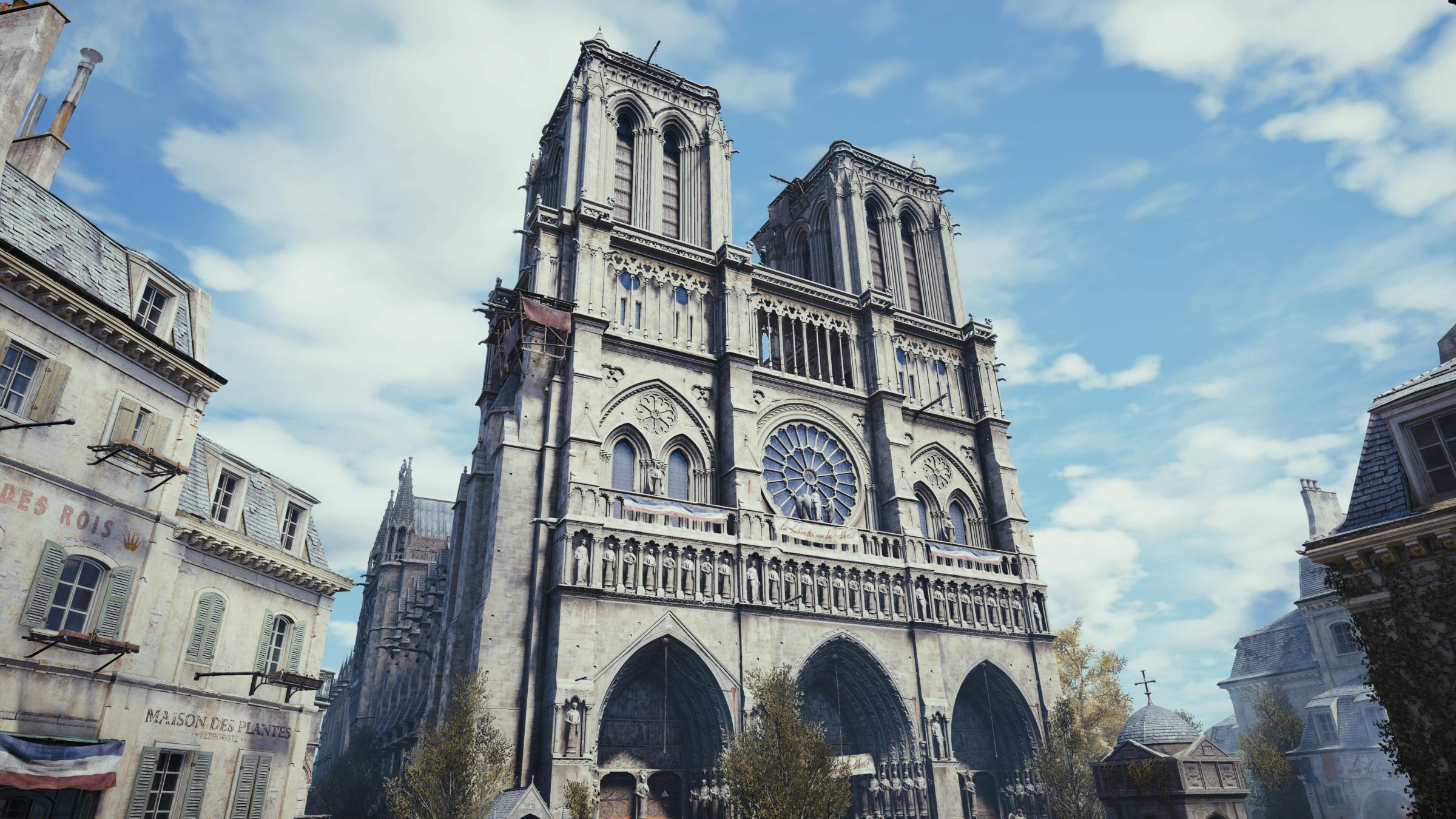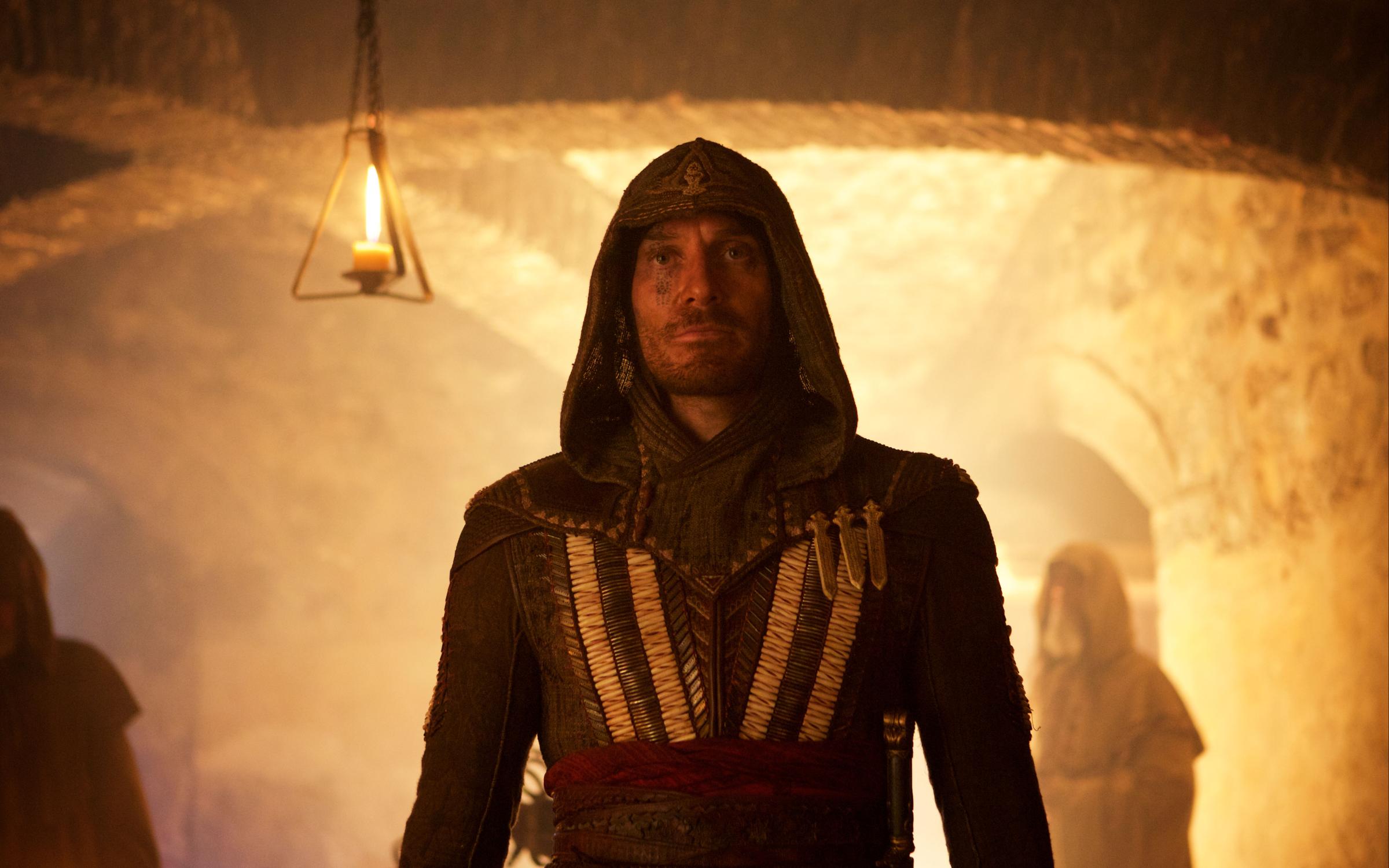It started in 1986, in the sort of castle you’d expect one of its characters to climb.
In the three decades since it improbably took up within the halls of a 19th century neo-Renaissance Brittany keep, French multinational games publisher Ubisoft has turned out some of gaming’s grandest franchises. 30 years old this year, it’s become a creative heavyweight whose reach extends across six continents. From Rayman‘s ghost-limbed antics to the tactically encyclopedic Tom Clancy games, the crypto-byzantine Assassin’s Creed series’ edgy roof-running to Just Dance‘s infectious bust-a-moves, Ubisoft has turned quirky, technically involuted concepts into industry exemplars.
TIME recently spoke with Ubisoft cofounder, chairman and CEO Yves Guillemot about the company’s origins, what he’s learned about overreaching, recent threats of hostile takeovers, what interactivity means for the future of the species, and why, of all things, a castle.
TIME: What kinds of things influenced you growing up?
Yves Guillemot: People. Actually, the fact that I was surrounded by brilliant and creative people. Brilliant and creative people were really what helped me to continue to go forward.

You came out of school with a business degree. What drew you as a businessperson in 1986 to video games?
It started with Michel, my brother, who was in charge of finding diversification for my parents’ business. We tried CD audio to start, and that worked okay. But then we tried mail order for video games, and then distribution of video games to stores, and we said, “This is an interesting business that’s actually adapted to us.” Because we played all kinds of games and were very interested to get into this world that we saw emerging. So we decided in 1986 to create games. That’s how Ubisoft started.
Was it more for love or money?
We were playing games in arcades and bars and different places, and we in particular loved all the Japanese types of games. And then it was this idea, from a list of opportunities, that we loved the most and that we felt had the most potential for our generation. As for whether we liked it more or felt it was good business, it was good for both, actually. And what we liked from the beginning is that it was a worldwide business. That was very important in the choice we made at that time.
You took your company name from the word ubiquité, or “being everywhere at once.” Whose idea was that?
It was my father Gerard’s idea. He liked the sonority of “Ubi,” but he was also extremely interested in the idea that gaming could be ubiquitous. That it could be a new world where nationalities would have no importance, meaning no negative connotations, and where we could share something across cultures worldwide. That’s what we liked so much from the beginning, in fact.
Ubisoft started in a castle. How did that happen?
When we launched Ubisoft, we hired some young developers who worked in our offices, but we also worked with outside creators. Most of them were very young and working on very small teams. And we wound up doing a big deal with Epyx. I don’t know if you remember, but they did Winter Games and Summer Games. We signed a big contract with them. And we said, “Okay, we’re going to have to deliver these games.” To do that, we realized we’d have to have all the creators and third-parties in one place, so we could ensure we delivered on time.

And so we decided to rent a castle in Brittany and to ask all those creators to join. For about a year, we worked together in that castle to create those games. And that was a very interesting experience, because the castle was in the middle of the countryside, but the castle wall was 22 kilometers long, so about 14 miles. It was a huge space.
At what point did you realize you wanted to make and not just distribute games?
We actually started out creating games as well, but on machines that weren’t used worldwide. The first was the Amstrad computer, and the Amstrad was strong in the U.K. and France and Spain. The first game we created was Zombi. That did very well, but it was only ported to the Commodore 64 two or three years later. So the first game took quite awhile to be done. I think it took 18 months, which today is small, but at that time it was too long. It was really well-received, but it was only on one machine in a few countries. And then we did other games on the Amstrad, because the French market wasn’t Commodore or Spectrum at all.
It took you nearly a decade to get to 1995 and Rayman.
We had over a dozen games before Rayman that were sold mostly in Europe. In the meantime, we did a few things that were sold worldwide, an Indiana Jones game for the NES and Street Racer for the Super Nintendo. We created a Star Wars Game Boy game that we published in Europe, but in America it was published by someone else so you might not know it as a Ubisoft game. But our first breakthrough game was Rayman. When the original Sony PlayStation debuted, it gave us a chance to be sold worldwide and recognized, and so we really arrived with a new machine.
My memories of Rayman are that it was the first action game a girl in my life wanted to play.
It’s true. I don’t remember which game it was that was first bringing a bit more humanity to the animation that drew women to the experience. But it really changed the industry and made games more attractive for female players. Rayman was one of these, I think you’re right. It was closer to Disney types of games than what we’d seen before.
You’ve described Ubisoft’s corporate pillars as creativity, working hard, no limits and leadership. Leadership implies doing things others aren’t. How has Ubisoft led in ways others haven’t?
I think in the ability to freely explore the worlds we create and learn about those worlds while playing, in particular with our Assassin’s Creed games. It’s something that was very attractive to us, because it didn’t really exist when the first Assassin’s Creed game arrived, this idea that you could learn about the past while playing and think about the possibility of doing better today. We also created a racing game called POD in 1997, the first multiplayer game that used the Internet. This was the first time players could play with other people online in a racing game, which back then was quite difficult to do.

When we bought [Tom Clancy-related games studio] Red Storm in 2000, we loved what they were doing, but it was very much on PC. When Microsoft arrived with the original Xbox in 2001, and when the following year, they debuted Xbox Live, we were the first to bring multiplayer to console with Tom Clancy’s Ghost Recon. Or take Just Dance, which went on to become the biggest rhythm game franchise in the world. Our success with Just Dance stems directly from our early experiments with the Nintendo Wii’s motion controls.
Not everything we do is immediately successful. Like Ozen, which is a product that teaches you how to control your breathing. We launched it in France, but it wasn’t successful enough, though it’s going to happen in Canada at some point. We’re constantly doing research that results in new approaches to things. And so I think our goal is to be able to inspire our teams to work on products that are going to be positive for people in general.
One of the accomplishments listed in your bio is that “two-thirds of [Ubisoft] production is in cost-competitive countries.” Globalism is back in the news. How do you ensure “cost-competitive” isn’t a euphemism for labor-exploitive?
The first thing is to find people that want to break the rules and succeed, and who are ready to put lots of energy into change. What we’ve seen when we open in new countries is people who find through us a chance to export their creativity, to create things that will be played worldwide. We saw this when Ubisoft Romania did [submarine simulation] Silent Hunter III, where they discovered that people from all over the world would love what they were doing. It was the same when we did Rayman here in France.
When you’re in a small country like France, thinking 20 or 25 years ago, you’re not sure if you’ll be able to create something people all over the world will want to play. What I’ve seen as we’ve opened in many countries is that there’s this desire to be recognized by the world community. When we created, for example, the PlayStation 2 version of Splinter Cell in 2003, that was done in China. When we gave them the project, we said, “You know it’s on Xbox, and the Xbox is extremely powerful, and the light and shadow effects were only possible because of this. Can you make that happen on PlayStation?” The engineers in Shanghai said “We can.” And then they actually did it.
It was a huge accomplishment that was recognized by everyone in the world. They did something we thought was impossible. And it helped them create other games thereafter. So when we open in other countries, it’s more than being lower-cost. That’s obviously a factor, but more than anything else, it’s about the possibility of giving global teams a chance to be successful.
Our Assassin’s Creed and Watch Dogs and Far Cry games are now created in many countries. And I would add that we’ve not had the problem of paying people too little because our business, and the computer industry in general, tends to pay much more than most in these countries because the people we recruit are ingenious.
A few years ago you released two mainline Assassin’s Creed games in a single cycle, which led to talk about Ubisoft overreaching and the series quality dipping. You’ve since said Assassin’s Creed could use a break. What’s going on there?
First, in 2014 we were still transitioning between older and next generation consoles, and we thought it would decrease the quality of the next-gen experience if we designed it for both. So we had two teams on two different Assassin’s Creeds just to make sure we could create the best games possible. Assassin’s Creed Unity (read TIME’s review here) was probably the most ambitious product we’ve worked on, but we were trying to do too many things at the same time. We were next-gen. We were open world. Montreal was bringing cooperative and multiplayer. And all of that was happening simultaneously.
Then, when Unity arrived, it wasn’t polished enough. We continued to polish if after launch for a long time, but it was, for us, a big surprise—that in having too many things to do at the same time, we weren’t able to bring the game to our desired level of quality. And so we said, “Okay, we have another game that’s coming next year [Assassin’s Creed Syndicate], and it’s well on the way and it’s working fine. But we don’t want to be in that situation again, so we’re going to give a lot more time to polish these games and really deliver the ambition.”

The reason you’re seeing these games appear more regularly is that we have different teams with enough time, normally, to create different products. So it’s not “Do you release a new game every year?” It’s really “Do you have enough time to realize your ambitions?” That’s why we’re now saying, “Okay, we have to make sure we have the time we need to achieve the level of quality that we want to bring.”
For Ubisoft’s 20 year anniversary, you said interactivity would be the biggest thing in game design for the next 20 years. What does interactivity look like to Ubisoft over the next decade?
I think the games industry is going to let people experiment with what the world will become. By that, I mean in terms of simulating what’s going to happen to us. Most of what’s innovative now comes from computers, from their capacity. So think about artificial intelligence. AI is going to be in most of the objects we interact with, and it will be in joining these AIs together that the world is completely transformed. But it’s going to be so different that it will be important for us to simulate what it’s going to look like. I think games, actually, are going to be the vehicle that gives us the opportunity to understand and play with all the opportunities we’re going to have.
I see games more and more as an opportunity to explore new worlds, new lives, new possible experiences, but being closer and closer to what our future will be. So interactivity, the fact that we are an actor in those worlds like we are an actor in our lives, is, for me, something that has no analogue in our lives, because we’ll have unlimited power. It’s going to be very important for us to explore what our world will be like in the future, and for that, I think game creators in conjunction with the community of players have a huge opportunity to actually give humanity a chance to build tomorrow’s world.
It seems we’re on the verge of having many more conversations about the existential ups and downs of super AI.
As we are humans, we are going to pile up the world, and so we will likewise pile up AI. I’m not worried about our capacity as humans to actually control our super-intelligent machines. We’ll have to make sure we design them well, of course, and we’ll have to be cautious. But I think we have a good chance to make AI work for our benefit.
What sort of manager are you? At a remove from the games? Or down in the trenches like a Shigeru Miyamoto, playing and offering feedback?
I participate in all the games that we create, but it’s more looking at what kinds of experiences we want to offer. On the gameplay side, the Miyamoto side, I would say it’s very much [Ubisoft chief creative officer] Serge Hascoet, with whom I am working all the time to make sure we’re coming up with totally new experiences. But as a manager I’m focused more on trying to understand all of the problematics and making sure we can bring the experiences we want to bring.
What’s going on with Vivendi? In June they snapped up a mobile game studio you founded in 2000, and they’re continuing to buy up Ubisoft shares. Ubisoft’s public response minced no words, saying “This is another indication that Vivendi is continuing its ill-advised and value-destructive approach of attempting to take creeping control of companies like Ubisoft.”
We see Vivendi more as a financial company than anything else. When I say “financial,” I mean “I buy at a price, I sell at another, and I try to make a profit in the middle.” So Vivendi is really, for me, the company that buys a company, sees what they can do with it, then resells it or sell parts of it to make more money. So that’s why we think it’s a danger for Ubisoft, because the kind of company that we are depends on the quality of the experience we’re providing. We feel that taking it and shaking it to try to sell a part to this one or that one is going to be a serious problem. Our approach to creating shareholder value lies in building experiences gamers want, and I can say we’ve done quite well this past year. We increased the number of people playing our games by 44%.
Successful enough to hold off these overtures?
That’s what all the people in the company are working on, to make sure we’re creating strong value for gamers which in turn creates strong value for our shareholders, so that they’ll support our continuing to operate as we are. We think that’s the best way to fight against Vivendi’s approach.
The Assassin’s Creed movie is out on Dec. 21. I assume you’ve seen it in final form. Does it apprehend what you’ve striven for with the series, and do you think they’ve cracked the “video games make awful movies” cliché? (Read TIME’s review of the Assassin’s Creed film here.)
We think we’ll crack it. I think we have the best movie that’s come from a video game. But now the public will tell us, so it’s difficult for me to say before it’s in the market. What I can say, is that the actors are going around to show the movie internationally and to solicit reactions from the press in various countries, and I’m seeing lots of very positive feedback. So it looks like we have something that people will like very much. We’ll see. It’s difficult for me to say more.

It’s also that Assassin’s Creed as a world is now big enough and popular enough to support this kind of a thing, and that’s something that’s great for video games and great for Ubisoft as well. We’re able to bring [Assassin’s Creed] to things like movies, to things like theme parks, to books, and that was something that Ubisoft really started back in 2011. We were one of the first companies to do that, to really take ownership of these different franchises that we created and look at how we can bring them into new areas.
And it’s a way for us to be successful in video games in the future. The fact that we’re able to leverage these worlds in other media helps us to do better video games, because we’re learning how those industries create characters, how they work, how they create stories and so on.
Ubisoft games often dive headlong into contemporary or historical political thickets. Do you feel an obligation to tell more subversive or clarifying stories, given some of the things happening in the world?
I think our job, and we have to get better at this, but our job is to give different opinions. By that I mean having characters that can express their way of seeing the world and how it should be organized that perhaps differ from your own. Our job is not to say, “You should do this or that.” Our job is to give you a chance to play with a game that lets you encounter different types of characters that might have different opinions, so that you can make up your mind.
At Ubisoft we want to give you enough diversity and liberty to play the way you want. Our job is to devise elaborate systems that produce a multitude of possibilities, so that you can make your own way in these games. We are primarily after that, to put you in situations and in front of people that are different from the ones you might meet in general, and that are actually going to help you to think about an idea and perhaps learn something. So that’s more the direction Ubisoft continues to want to take.
More Must-Reads from TIME
- Cybersecurity Experts Are Sounding the Alarm on DOGE
- Meet the 2025 Women of the Year
- The Harsh Truth About Disability Inclusion
- Why Do More Young Adults Have Cancer?
- Colman Domingo Leads With Radical Love
- How to Get Better at Doing Things Alone
- Michelle Zauner Stares Down the Darkness
Write to Matt Peckham at matt.peckham@time.com